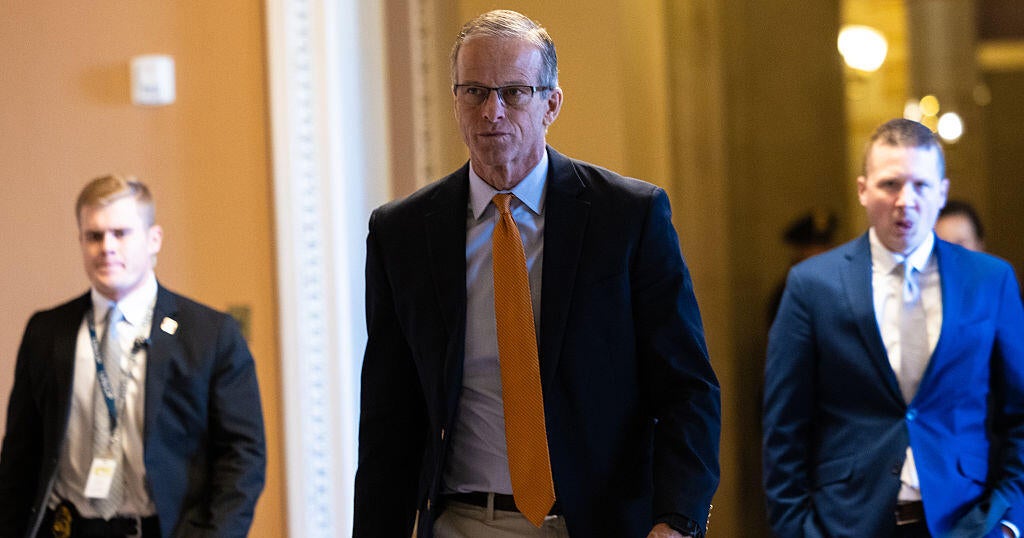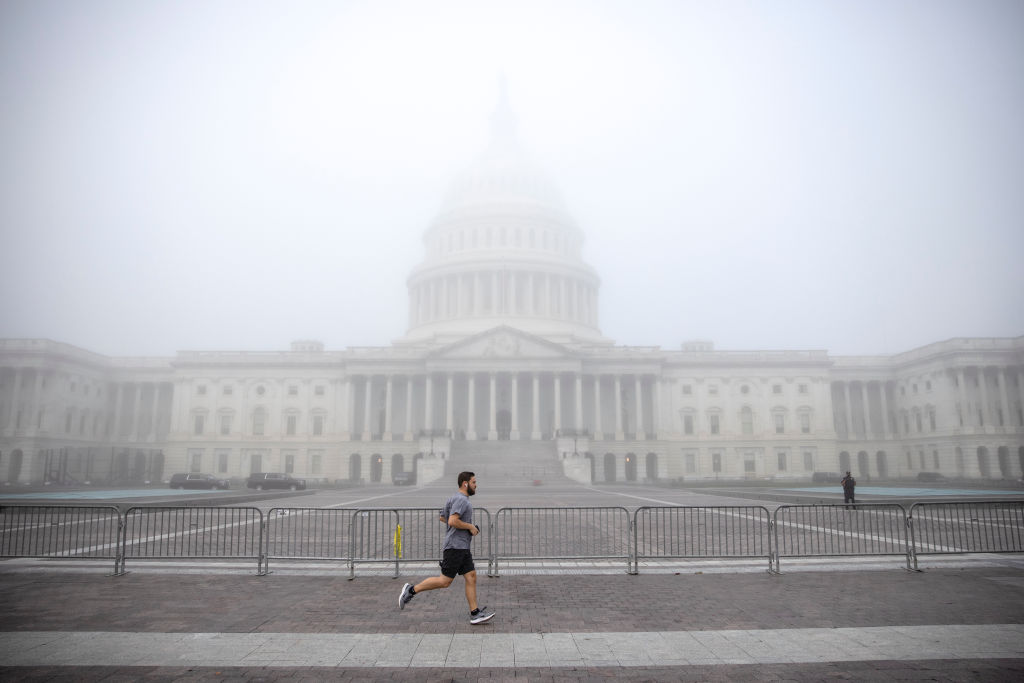Supreme Court takes up gun-makers' bid to end lawsuit from Mexican government over cartel violence
Washington — The Supreme Court on Friday said it will consider a bid by U.S. gun-makers to end a lawsuit from the Mexican government seeking to hold them liable for violence committed by drug cartels.
The case involves some of the nation's biggest and most well-known gun companies, including Smith & Wesson, Beretta and Glock. They are urging the Supreme Court to reverse a lower court ruling that allowed Mexico's lawsuit against them to proceed despite despite a 2005 law that broadly shields the firearms industry from liability.
The case will be argued in the court's next term, which kicks off Monday. It is one of 13 new cases the justices added to the docket after meeting to consider a host of appeals earlier this week.
The court fight arose out of an August 2021 lawsuit that the Mexican government filed against seven U.S. gun manufacturers and one distributor that sought to hold them liable for the violence committed by drug cartels in the country. Mexico claimed gun dealers in the U.S. are the main source of guns used by the cartels, with as many as 597,000 of their firearms trafficked into Mexico every year. Nearly half of all guns recovered at Mexican crime scenes are made by the companies named in the suit, lawyers said.
The suit alleged that the gun industry is "aiding and abetting" the cartels by engaging in certain business practices even as they know that the cartels have been able to smuggle their firearms across the southern border. Firearms makers in the U.S., the Mexican government claimed, engaged in this conduct to profit off the criminal market for their weapons.
Mexico specifically pointed to four different sets of policies that it said bolstered its claim that the gun industry "actively assisted and facilitated" terrorist groups at the U.S.-Mexico border for decades, including its decision to continue making and selling semi-automatic rifles like the AR-15 and large-capacity magazines. The Mexican government also took issue with gun companies' marketing and manufacturing decisions, claiming they made their firearms easy to modify.
Mexico asked for $10 billion in damages and a court order requiring the gun-makers to take "all necessary action to abate the current and future harm that their conduct is causing and would otherwise cause in the future in Mexico," among other steps.
A federal district court tossed out Mexico's lawsuit, pointing to a 2005 law that bars such suits from being brought in U.S. courts. That law, the Protection of Lawful Commerce in Arms Act, or PLCAA, protects law-abiding gun companies from liability for the harm caused by the criminal or unlawful misuse of their products. If a member of the firearms industry breaks the law, the liability shield may lift.
The law has been applied in a host of lawsuits brought by cities and American citizens who have tried to sue the gun industry over the misuse of their weapons.
A federal appeals court revived the Mexican government's suit, claiming it qualified for an exception under the 2005 law. The court found that "by passing along guns knowing that the purchasers include unlawful buyers, and making design and marketing decisions targeted towards those exact individuals, the manufacturer is aiding and abetting illegal sales."
The gun industry is asking the Supreme Court to reverse that decision, warning that it could open the door to a flood of lawsuits from other foreign and U.S. governmental entities seeking to hold the firearms industry accountable for the violence perpetrated by users of their weapons. While the case initially involved eight gun-industry entities, the district court granted a bid from six to toss out the suit on other grounds. That decision did not effect Smith & Wesson and Interstate Arms.
"Mexico's multi-billion-dollar suit will hang over the American firearms industry for years, inflicting costly and intrusive discovery at the hands of a foreign sovereign that is trying to bully the industry into adopting a host of gun-control measures that have been repeatedly rejected by American voters," lawyers for the firearms manufacturers warned the Supreme Court in a filing.
Lawyers for the Mexican government stressed that the case is far from over, as proceedings are continuing before the district court, including on efforts to toss out the case on other grounds. They accused the gun industry of providing firepower to cartels, which have killed thousands of Mexican civilians, and refusing to curb weapons sales to a subset of dealers despite urgings from the Justice Department to do so.
The manufacturers "made distinct, repeated, and deliberate decisions to supply unlawful sellers and took affirmative steps necessary for the illegal gun sales that armed the cartels," the Mexican government argued in a Supreme Court filing.
Workplace discrimination and nuclear waste
In addition to the gun-makers' case, the Supreme Court also agreed to hear a workplace discrimination dispute involving an Ohio woman who claims she was discriminated against at her job on the basis of her sex and sexual orientation.
Marlean Ames is a straight woman who worked at the Ohio Department of Youth Services, and she claimed that she was passed over for a promotion by her boss, who is a gay woman. The job was instead offered to a gay woman who had started at the agency two years after Ames, didn't initially apply for the position and lacked the minimum qualifications for the role, according to court filings.
Ames was then removed from her position at the Department of Youth Services and replaced by a gay man, she claimed. Ames sued her former employer in November 2020, alleging she was unlawfully discriminated against in violation of the Constitution and Title VII of the Civil Rights Act, which prohibits workplace discrimination on the basis of sex.
A federal district court and appeals court sided with the state as to Ames' claims. The Supreme Court agreed to review the lower court's ruling.
Also among the more than a dozen new cases the Supreme Court will hear in the coming months is a court battle over where to store nuclear waste. It arose from a 2021 license issued by the Nuclear Regulatory Commission to a company called Interim Storage Partners to store spent nuclear fuel at a facility in Andrews County, Texas.
State officials opposed the move and challenged the commission's issuance of the license, arguing that it lacked the authority to do so. The U.S. Court of Appeals for the 5th Circuit agreed, and the Supreme Court agreed to review its decision.
Texas officials have argued that up to 40,000 metric tons of nuclear waste could be stored above-ground in Texas' Permian Basin, which is a major oil field and the only source of water for communities nearby, if the Nuclear Regulatory Commission's decision is allowed to stand.
A facility in Yucca Mountain, Nevada, was supposed to be the site for a government-owned underground repository for nuclear waste, though the Obama administration halted work on the facility.





